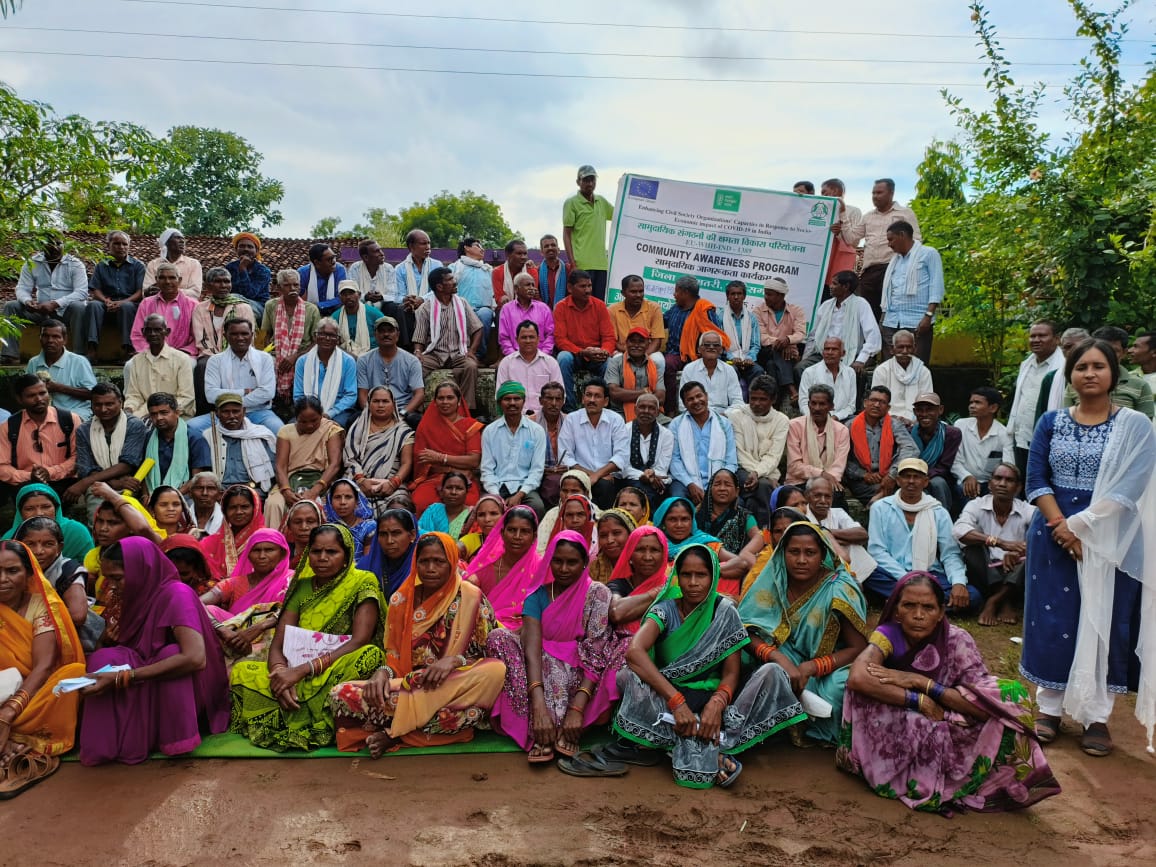
Project Duration- 1st January 2022 to 31st December 2025
Project Background- The case of COVID-19 was confirmed in China by the end of Dec. 2019. The first case in India was detected in Kerala on 30th January. On the same day, WHO declared the COVID outbreak as a public health emergency of international concern. But on 11th March 2020 WHO declared covid-19 a pandemic.
On 19th March 2020 PM Modi while addressing the nation called for a Janta curfew on the 22nd March from the 23rd morning India went into a nationwide lockdown with a night curfew.
The country was not prepared to face such a situation. The medical impact of the pandemic has itself been a major challenge, but the economic impact of the lockdown is much more. Hundreds of hunger deaths started being reported and migrant laborers dying while trying to walk their home.
In this situation, Ekta Parishad being a national level jansangthan could not and did not remain silent. We started feeding the migrant workers coming back home on the street. Organisations like PRAYOG requested the funding agencies to come forward and support the philanthropic cum relief activities.
Fortunately, WHH came out with this relief project with the support of European Union. The project “Enhancing Civil Society Organisations Capacities with response to socio-economic impact of COVID-19 in India.” It is an integrated project where skill development training is conducted for workers from unorganised sector in collaboration with the Government section, vulnerable households are capacitated to access government programmes on food, employment, agriculture and allied sectors and social safety nets, also the campaigns and mitigations on covid-19 are organised in collaboration with government. The advocacy activities are also undertaken for policy changes on rights of unorganised sector & migrant workers.
Project Objective- The project cover 3 districts (Mahasamund, Gariyaband, Dhamtari) in the state of Chhattisgarh 50,000 households with 250,000 population and which include children, adolescent, youth, old, men and women. The direct target group of about 65,127 citizens mostly unorganised sector workers and migrants. It is expected that 50% of the target group will be women, 2744 will benefit from skill-building programmes, 10,000 will be directly reached through 3 helpdesks, 50,000 will be targeted through various covid-19 awareness campaigns and 4200 will profit from immediate relief measures. In addition to the cadre selected 150 community leaders and volunteers will be trained on various government programmes. The targeted groups in the proposed districts have been selected based on their vulnerability.
Project achievements-






